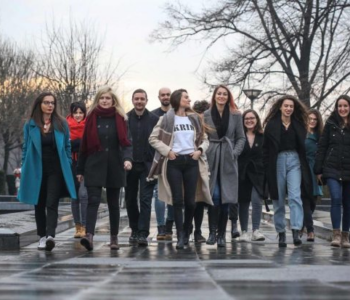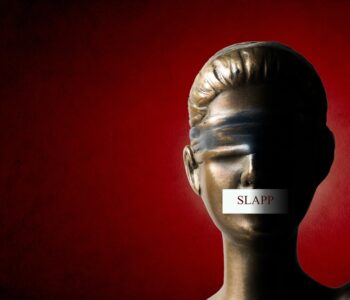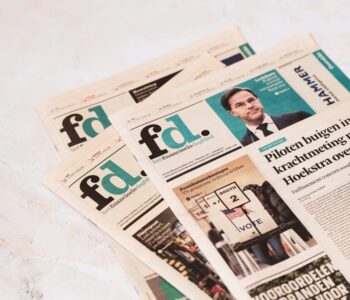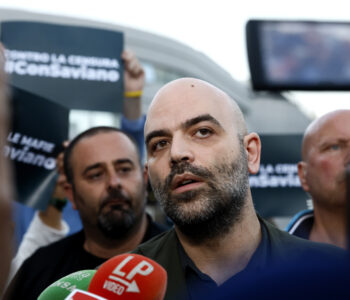“The way these complaints were written, I think they have one motivation: to try to stop the pen. They are written so poorly that they don’t stand a chance, but their intent is to send a message, to instill fear in the other party”. There is clarity and acumen in the words of the editor of the online newspaper Dolomiti, Luca Pianesi. All the complaints of the last few years – shelved and never brought to court – fit the definition of SLAPP, Strategic Lawsuit Against Public Participation.
The cases recalled by Pianesi share a harassing strategy, a casual use of the judicial system and an intimidating intent as well as the attempt to silence the debate. Like the SLAPPs, the 7 complaints and several warnings received by Pianesi over the last eight years (Dolomiti has been online since December 2016) have also shown much less noble objectives than defending the good name of those who claimed to feel damaged by the newspaper: “At the beginning we were subjected to much more pressure, phone calls, letters, but now I have thick skin. In 2022, for example, I received 4 complaints and 2 warnings, basically every two months I received a notfication. Yet I have never ended up in court”.
The underworld: unknown numbers and differing perceptions
While relatively little is heard about gag complaints in Trentino, credit goes to Luca Pianesi for touching on the subject publicly.
In a column dated November 21, Pianesi retraced the over two years that had passed between when he was notified of a senator’s complaint and when the judge for preliminary investigations decided to shelve the case, after the senator had opposed a similar decision by the public prosecutor: “For us, who have been hanging on this story for 2 years, all that’s left to do is write. Tellwhat happened”, he wrote.
“But for every one we talk about, there are 15 others that one has to deal with”, Pianesi, whom we met in the editorial office in Trento, tells us. “There’s an underworld that a journalist, a newspaper editor, supports on their shoulders, with their family, with their colleagues”.
Unfortunately, the extent of this “underworld” is unknown. Journalists here are reluctant to talk about it with outsiders, and when asked, they tend to downplay the extent of the phenomenon, as if the number of lawsuits were an indicator of poor quality journalism: complaints – even those filed by individuals in bad faith – still seem to be considered a professional disgrace, and each case is archived in silence, perhaps breathing a sigh of relief but without celebrations.
This seems to be confirmed by the director of the daily newspaper l’Adige, Pierluigi Depentori, who has been at the helm of the longest-running newspaper in the province for two years, and who claims that he has not yet ended up “in court for lawsuits filed during my time as editor”, as “in most cases we receive threats of lawsuits” (also part of an intimidation strategy).
According to Depentori, to protect themselves, journalists must keep up to date on legal rules and mechanisms: “To keep colleagues updated, I plan to repeat the training course with the lawyer who assists us”. But when faced with individuals who act “with bad faith and gross negligence”, as stated in Article 96 of the Civil Procedure Code on frivolous litigation, there is no training that can help: even the most careful and respectful journalist can be the victim of a specious lawsuit.
In Trentino, the situation seems to be in line with the rest of Italy. 4 newspaper editors (Pierluigi Depentori of l’Adige, Luca Pianesi of Dolomiti, Simone Casalini of T Quotidiano, Ettore Paris of the monthly investigative magazine Questotrentino) and journalist Laura Mezzanotte, with different nuances, report a professional risk that puts work serenity to the test. They confirm
the abundance of at least warnings and, even though the cases are not many, they take very seriously the intimidating power of each individual complaint or request for compensation for damages.
Ettore Paris, despite enjoying the free assistance of several lawyers since the 1980s, recalls the tense climate in the editorial office, every time, even if the case is then shelved or acquitted: the request for damages of 800 million liras by a construction company, the 50,000 Euros requested by an MP, the complaint by a winery’s CEO, the lawsuit filed by Licio Gelli’s son. “It’s not about numbers, the intimidation is always there”.
The perception at the union is more serene. Rocco Cerone, reconfirmed as regional secretary of the National Federation of the Press for Trentino-Alto Adige/Südtirol, lets us know: “Although the phenomenon is alarming at a national level, on a regional basis it doesn’t seem to be so serious: at least there aren’t as many reports as in the rest of Italy”.
Promised complaints and warnings
The number of threatened complaints is impossible to estimate: warnings, emails, registered letters or even just phone calls that, in Pianesi’s summary, say: “Don’t talk about me, or I’ll sue you”.
This is far from a marginal phenomenon in the galaxy of “legal” intimidation and the forcing of the legal system, a phenomenon that a few years ago the Otto Brenner Foundation of Frankfurt, in collaboration with the Gesellschaft für Freiheitsrechte e.V. (GFF) of Berlin, analysed in the volume “Wenn Sie das schreiben, verklage ich Sie!”. Studie zu präventiven Anwaltsstrategien gegenüber Medien (“If you write that, I will sue you! Preventive strategies of lawyers against media”).
According to the research, carried out in 2018 by consulting databases and interviewing 40 journalists and 20 lawyers in Germany, each newspaper receives on average at least 3 warnings per month. “These preventative strategies, which are increasingly frequent, increasingly aim to block the publication of an article or to influence public perception on the subject”.
Interference in journalism, and therefore in the right of citizens to be informed, is thus obvious, but known to few, as it is entrusted to the usually confidential correspondence between an external subject and the publisher, or director of the newspaper. But the phenomenon, as everyone in Trentino confirms, is quite widespread.
Luca Pianesi recalls an actual warning by one of the leaders of the Autostrada del Brennero: “Luckily that time we were not the only ones to have been warned, there were also our competitors from the daily newspaper l’Adige. And this allowed us to develop a common strategy and not be afraid”.
Having a legal office behind that assists the newspaper without the costs falling on individual journalists is obviously the recipe for serenity. “For us, as a cooperative – explains Pianesi – legal costs are a considerable burden. If it comes to a trial and an acquittal, the plaintiff can be ordered to pay our costs as well. But when the case is shelved, we have to pay the lawyer in full, like those two years with the senator that cost me 2000 Euros”.
An original case concerns a complaint that was only announced by MP Vittorio Sgarbi, president of the Mart museum of contemporary art of Rovereto and Trento. Simone Casalini recalls an email received from his publisher: Sgarbi contested some data published by the newspaper and said he was “forced to file a complaint”. Which in the end he did not.
“The message is always the same: I’ll let you know that I can sue you, but if you stay quiet I won’t”, explains Casalini, recalling how in these cases a “strong” publisher, in solidarity with the editorial staff and not willing to bend, is fundamental. “A large role is played by the dialogue between the editorial staff and the publisher”, he explains.
Monitoring, an impossible task
However, the issue with numbers seems to be above all their lack. “The communication strategy on complaints is decided by the lawyer”, confirms Laura Mezzanotte, a journalist for the monthly Questotrentino, sued in 2023 by the mayor of Riva del Garda and still awaiting a decision from the judge. “There are cases in which the lawyer recommends a settlement and paying, even if you could win in court. It is done for the sake of time, of convenience in relationships. In my opinion, the decision to speak publicly about a complaint depends only 10% on the individual journalist”.
Instead, according to Mezzanotte, we should think about a public register of gag lawsuits involving journalists, cases shelved or acquitted should be made public to provide a deterrent.
This is essentially what the European Commission asked for in the Recommendation on SLAPP of April 2022, together with the issuing of what would become the directive adopted by the EU last spring, which however only concerns transnational cases because the Member States preferred to retain jurisdiction over national cases. The Commission had also sent Member States a list of wishes and indications for them to adopt “effective, appropriate and proportionate measures to address manifestly unfounded or abusive court proceedings against public participation and protect in particular journalists and human rights defenders against such proceedings”.
The paragraph on “data collection, communication and monitoring” opens as follows: “Member States should, taking into account their institutional arrangements on judicial statistics, entrust one or more authorities to be responsible to collect and aggregate, in full respect of data protection requirements, data on manifestly unfounded or abusive court proceedings against public participation initiated in their jurisdiction. Member States should ensure that one authority is responsible to coordinate the information and report the aggregated data collected at national level to the Commission on a yearly basis starting by the end of 2023”.
Over a year after that deadline, the Italian government does not appear to be drawing up that list, while monitoring is carried out by independent entities and NGOs, whether the trade union, associations or consortia like MFRR of which OBCT is a member. Monitoring untold cases is, however, an impossible task, as it is necessary to rely on the stories of the protagonists, who for various reasons often remain silent.
“For the most important cases, in the past, we published articles to tell readers about our acquittal regarding a defamation complaint”, the editor of l’Adige confirms; sometimes it happens, not always, and in any case very rarely during an ongoing proceeding.
From mayors to magistrates
A lawsuit still in progress involves Laura Mezzanotte, a journalist from Questotrentino sued by the mayor of Riva del Garda. Here the timing is very anomalous, and perhaps the “Romeo” investigation into the connections between business and politics, conducted by the Carabinieri of the ROS and the Guardia di Finanza and coordinated by the District Anti-Mafia Directorate of the Trento Prosecutor’s Office, plays a role. The case also involved the mayor, who ended up under house arrest in December 2024.
The contested article, in which Laura Mezzanotte asked who had financed the electoral campaign in Riva del Garda, was published in February 2023; in April the mayor filed a complaint for defamation; only over a year later, in September 2024, did the journalist receive notification. In the meantime, QT continues to write about the events in Garda (“There was no SLAPP effect here, we didn’t know we were being sued”, explains Mezzanotte).
The climate at the local level is tense, and when we ask our respondents who they fear most, they answer almost in unison: “The private sector”. While politicians “are more familiar with the game” (as Luca Pianesi puts it), accept the challenge of communication and somehow know how to take criticism, private companies are more “sensitive”, have powerful lawyers and are therefore more dangerous.
Magistrates have also targeted the press with legal actions. “I had not yet heard of it”, says Simone Casalini, director of T Quotidiano, “but this is exactly what is happening to us: two magistrates are suing us for defamation, and this only because, in a very balanced and sober judicial news article, we reported three lines from a leaflet critical of them”.
The territorial jurisdiction in this case has obviously been changed, and the editor is answering to the court of Brescia while waiting for the decision of the public prosecutor. “It is difficult for us to understand the reasons for an action of this kind, that article seemed truly watertight to me. Let’s see how it ends”.
Proposals and ideas in line with the EU
The wait, the tension and the actual costs of legal assistance are key elements of SLAPPs, and media workers are very clear about what the solutions could be, not so much to avoid complaints, which remain a right of readers, but to streamline procedures, to make things less traumatic, to reduce costs.
Among our respondents, even those who have not read the 2022 Recommendation, even those who were not aware of the activity of CASE, the European coalition against SLAPPs, and even those who had never heard of SLAPPs, end up suggesting solutions perfectly in line with the proposals of the European Union. Perhaps the only divergence concerns the decriminalisation of defamation. “God forbid – writes Laura Mezzanotte on QT – that instead of a criminal complaint someone who wants to silence you brings a civil lawsuit against you. There it is even worse: defense times and costs are much higher. And there is not even a filter of a judge who can decide to drop the case: the civil judge must continue the case in any case”. The journalist’s fears refer to the current situation, whereby the media are more willing to deal with criminal cases (according to data, archived at over 70%) than with civil cases (more expensive because a trial must be faced in any case, even five years after the publication of the contested article, while for the crime of defamation the complaint must be filed within three months). To bring Italy in line with international standards on freedom of expression, whereby there should be no crimes of opinion, the decriminalisation of defamation is instead requested by the bodies that deal with the issue, including the CASE coalition: in light of the recent Recommendation of the Council of Europe, any decriminalisation should in any case be accompanied by a simultaneous inclusion in civil law of those guarantees that are currently lacking. For the rest, the solutions proposed by journalists and directors interviewed for this overview of Trentino touch on the same issues, perhaps with a few more ideas, from reimbursement of expenses to the humanisation of the notification procedure.
“On a procedural level, we should be able to make the plaintiff pay the lawyer’s fees even in the event of dismissal”, suggests Pianesi of Dolomiti. “If it were known that in the event of dismissal the plaintiff must also pay the lawyer of the other party, there would be fewer complaints”. Those who defend themselves from a totally specious accusation, and formulated in bad faith, should be rewarded in some way; but if the case is dismissed, there is no one who can ascertain the plaintiff’s bad faith. “The compensation that arrives at the end of the trial is too late”, agrees Laura Mezzanotte, “in the meantime I had to pay the lawyer for who knows how many years”.
Timing remains the key point. Simone Casalini from il T suggests “faster trials, which lead to a reduction in costs and eliminate the real reasons for the complaint: if everything is resolved in three months, the editorial staff will be under no one’s thumb”.
“Sensitivity towards the problem – adds Laura Mezzanotte – should lead the prosecutors to take charge of the matter immediately. At the moment there is no fast track for matters of public interest or for journalism, so the times are completely arbitrary and such arbitrariness is risky”.
Some hope for a change in the way in which one is informed of a complaint or a request for compensation: “One of the things that bothered me the most – says Luca Pianesi – is the method of notification of the complaint which is absolutely unpredictable: once the carabinieri arrived at my house in uniform, my partner was there with my child. The notification may arrive by mail at home, or at the editorial office, or via phone call from the barracks. Each time a different procedure, you never know… not to mention the notification notice that you have to go and collect at the post office after three days. When it’s a fine I’m very happy, I breathe a sigh of relief!”.
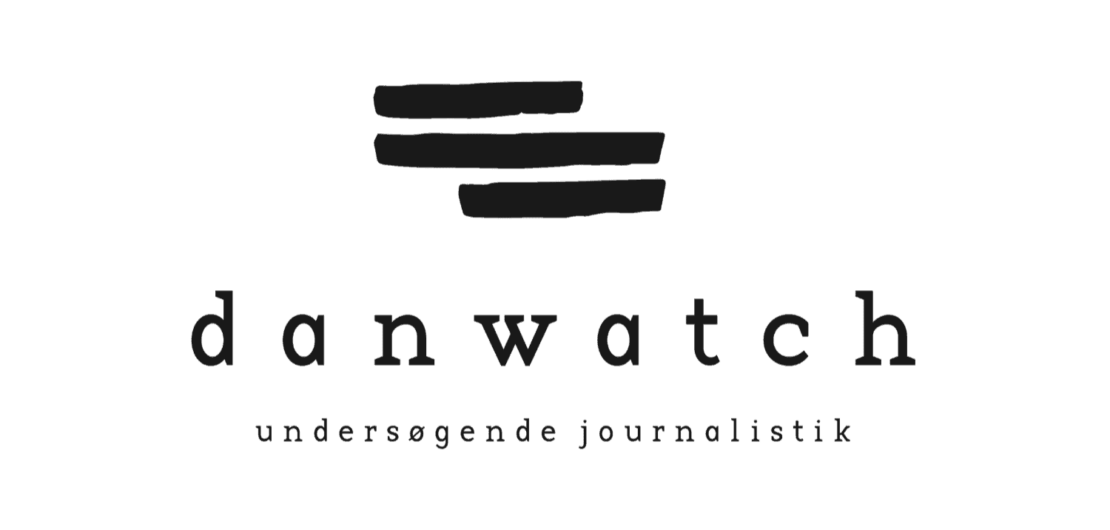 Allgemein
Allgemein


